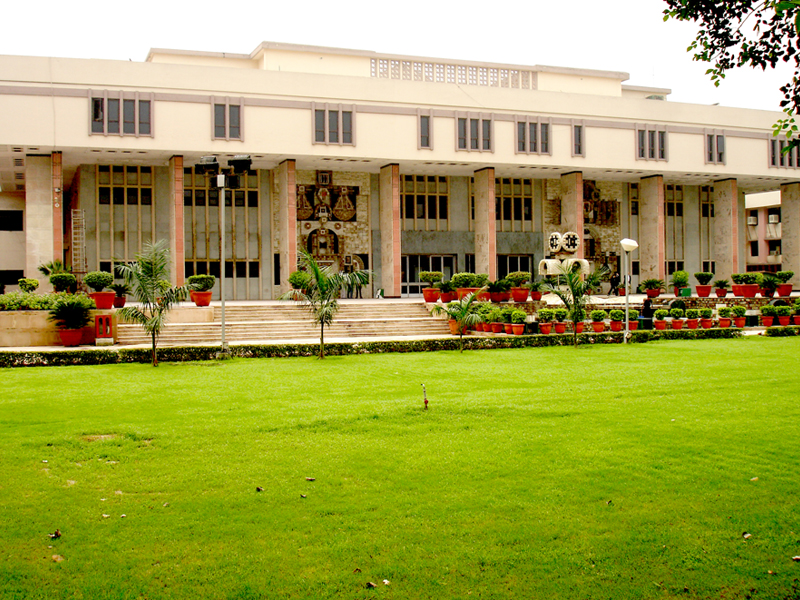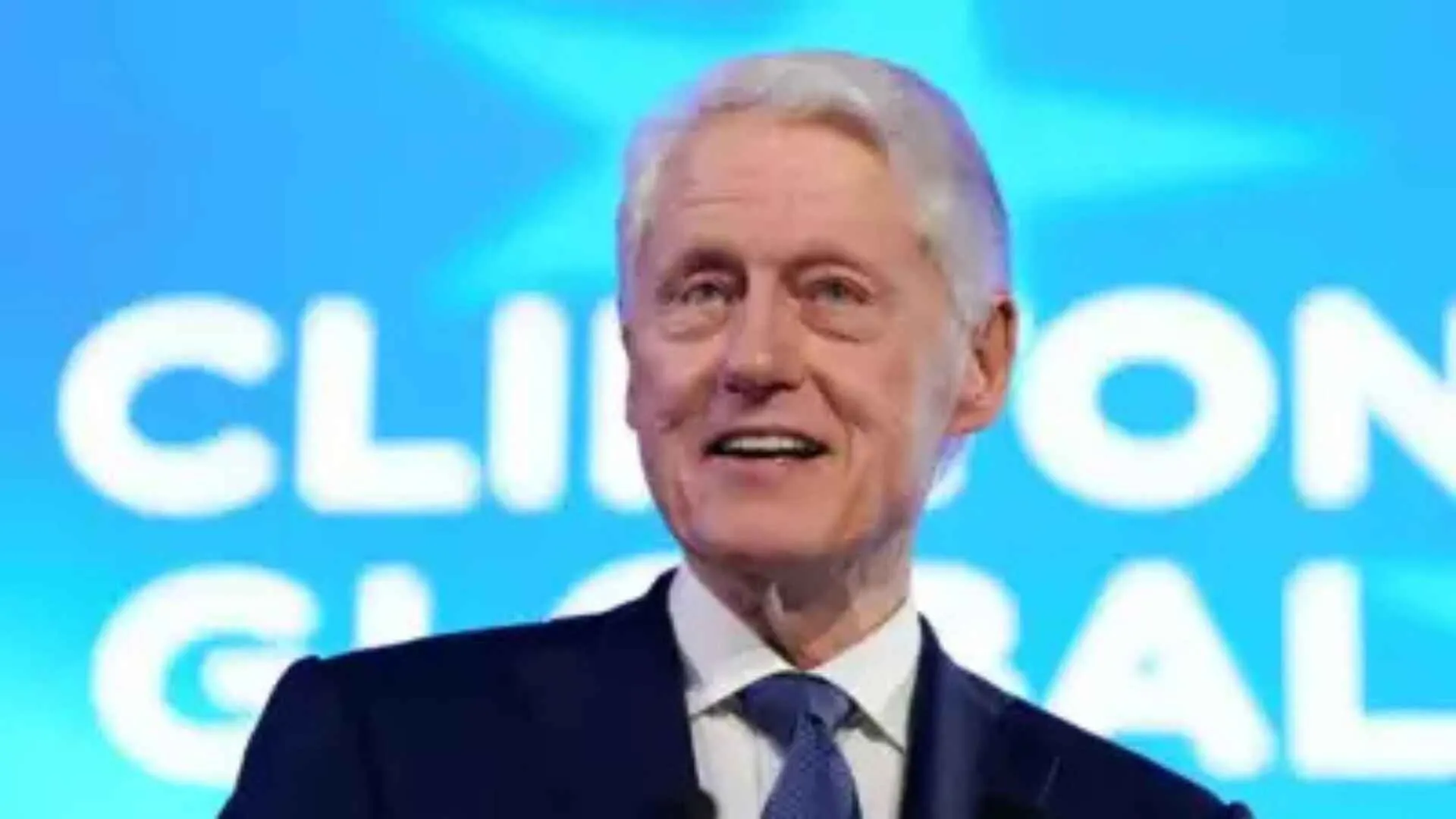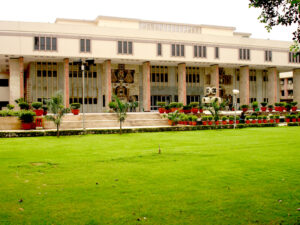While speaking out most vocally fully, firmly and finally in favour of safeguarding the fundamental rights of the prisoners, the Single Judge Bench of the Delhi High Court comprising of Hon’ble Ms Justice Swarana Kanta Sharma in a most pragmatic, progressive, persuasive, pertinent, powerful and path breaking judgment titled Ved Yadav vs State of NCT of Delhi in W.P.(Crl) 59/2023 that was reserved on February 14 and then finally pronounced on February 17, 2023 has issued a slew of guidelines for cases where an inmate or convict sustains work related injuries in prison observing that there is no monitoring or remedial mechanism to address such cases. The Bench very sagaciously observed that when there is no employee or employer relationship between prisoners and jail authorities, such inmates must be provided protection and remedies for work related injuries as the Constitutional vision does not permit any citizen to be left remediless for availing compensation for injuries even as a prisoner. Very rightly so!
At the very outset, this learned, laudable, landmark, logical and latest judgment authored by the Single Judge Bench of the Delhi High Court comprising of Hon’ble Ms Justice Swarana Kanta Sharma sets the ball in motion by first and foremost putting forth in para 1 that, “The present writ narrates the story of petitioner, who seeks remedy as a convict inmate of Tihar Jail, and requests the Court to examine an important issue of human rights that has been overlooked by prison laws and rules.”
To put things in perspective, the Bench envisages in para 2 that, “This judgment, thus, examines the issue regarding payment of compensation and its quantum, to a convict inmate of Tihar Jail who has suffered injuries i.e. amputation of three fingers of the right hand while working in the factory of Tihar Jail. This Court examines this question since neither the Delhi Prisons Act, 2000 nor Delhi Prison Rules, 2018 deal with the issue in question, except for Rule No. 1084 of Delhi Prison Rules, 2018, which reads as under: ―
1084. Payment of compensation to prisoners who meet with accidents resulting in physical or mental disability, serious injury, death, or loss of health due to occupational diseases, as certified by the Medical Officer.”
As we see, the Bench then mentions in para 3 that, “The petitioner seeks issuance of writ in the nature of mandamus directing the respondent to provide functional prosthesis for regular working of the amputated fingers of right hand at state expense in Airmid Hospital (situated at Samaypur, Delhi) or any other private hospital in which the said facility is available and to grant compensation for the loss suffered by him.”
While elaborating on the facts of the case, the Bench discloses in para 4 that, “The background facts of the instant petition are that the petitioner is confined in Central Jail no. 2, Tihar, Delhi as a convict who is serving life sentence in FIR bearing No.421/2012, under Sections 302/34 of Indian Penal Code, 1860, Police Station Samaypur Badli, Delhi. On 20.01.2021, the petitioner suffered partial amputation of three fingers of right hand while working on a Rag Chopper Machine in the paper unit of the jail factory of Central Jail no. 2, Tihar. The petitioner was immediately taken to the dispensary attached to Central Jail no. 2, and after receiving first aid, he was taken to Deen Dayal Upadhyay Hospital to the plastic surgery department. During the course of medical treatment, it was found that there was total amputation of the index finger, middle finger and ring finger of the right hand of petitioner. On 21.01.2021, the petitioner was sent for surgery and he was discharged from the Hospital on 03.02.2021. Thereafter, on 08.02.2022, the petitioner was issued a disability certificate which reflected that he had suffered permanent disability to the extent of 31% in relation to his right hand. After that, he was also taken to Department of Physical Medicine and Rehabilitation of All Indian Institute of Medical Sciences (‗AIIMS‘), New Delhi on 26.03.2022 for providing him with functional prosthesis. However, the petitioner was informed that only cosmetic glove for the right hand is available in AIIMS, Delhi and that he cannot be provided with functional prosthesis. The petitioner stated that he required functional prosthesis for regular working of the amputated fingers of his right hand and does not require cosmetic glove. On 22.04.2022, the petitioner had approached the Jail Superintendent of Central Jail no. 2, Tihar, Delhi seeking update regarding his application for grant of compensation and for providing functional prosthesis at the State‘s expenses. To his utter shock, petitioner found that the application had been returned to him without stating any reasons.”
Needless to say, the Bench states in para 42 that, “The following guidelines are laid down which will be guided by jurisprudence regarding right to equality and remedy available against injury based on expert advice and within the framework of a scheme which will be made, with rules by the concerned authorities.”
Most significantly, it would be germane to note that the Bench then enunciates in para 43 that, “Considering the same, this Court lays down the following guidelines:
a) In Case of a convict suffering work related amputation or life threatening injury, the Superintendent Jail will be duty bound to immediately inform about the same to the concerned Jail Inspecting Judge within 24 hours from the incident.
b) A Three-Member Committee consisting of (i) Director General (Prisons), Delhi, (ii) Medical Superintendent of a government hospital (including, but not limited to, All India Institute of Medical Sciences, Safdarjung Hospital, Ram Manohar Hospital, Deen Dayal Upadhyay Hospital, Guru Teg Bahadur Hospital, and Dr. Baba Saheb Ambedkar Hospital), and (iii) Secretary, DSLSA of the concerned district wherefrom the convict has been sentenced, will be constituted, who will assess and quantify the compensation to be paid to the victim of such work related injury, after perusing the opinion of a board of doctors which will be constituted at their request by the treating hospital.
c) The government hospital wherefrom the victim will be medically examined/treated for the injury or the disability, if any, the same will be put up before the above mentioned committee for assessment of compensation.
d) For assessing the injury/disability, the contributory negligence, if any, of the victim in question will be kept in mind.
e) It is clarified that the above guidelines will be applicable only in the case of amputation, or any other life threatening injury, arising out of work related injury, sustained by the convict.
f) The essential interim compensation will be provided to such victim in case of amputation or life threatening injury.”
In addition, the Bench seeks to clearly point out in para 44 stating that, “This arrangement will remain in place until necessary guidelines in this regard are formulated, or rules are made or amended in this regard or any amendment is brought in the Prison Act, 1894 by the wisdom of the Parliament of India, or in Delhi Prisons Act, 2000 to deal with such situation.”
Adding more to it, the Bench notes in para 45 that, “Since the present petitioner has already been provided interim compensation by the Jail authorities, the case of the petitioner qua enhanced compensation and for providing functional prosthesis will be decided in light of the above guidelines within three months from today.”
Conclusion
For sake of clarity, the Bench specifies in para 46 that, “While this judgment does not intend to create new rights of prisoners, it expresses and reiterates the recognition of right to equality, right to life and human dignity of a prisoner who has been convicted. This Court vide this judgment has tried to give meaning to the existing rights of the prisoners.”
Most remarkably, the Bench hastens to add in para 47 stating that, “The plight of the imprisoned in a democracy sheds light on the State as to how should States care for them since very few care for the imprisoned. The attitude of the majority towards the imprisoned viz. under trials or convicts is not very positive and those who speak on behalf of prisoners are at times considered callous towards victims of crime. The prisons are correctional institutions and they should be known as such. Those who have been part of the reformation of the prisons and the prisoners know that there are many in the prison who have been able to find meaning in their sufferings and despite going through the suffering rise again for themselves and their families.”
Most fundamentally and most forthrightly, the Bench holds in para 48 that, “The fundamental rights should not remain on paper and it is the duty of courts to ensure that they become living law and in practicality assist, help and guide the citizens. The injury and disability suffered by the applicant in this case cannot be assessed to be lesser in pain and suffering compared to a free citizen. Pain from an injury cannot be different for a convict and a free citizen. The Court has to hear the voiceless and feel and treat the pain and suffering suffered by the convict not as pain of a prison inmate but as that of a human being. Under the Constitutional system of India, the Courts have always stood guard and have acted as refuge for people who may be helpless, out-numbered, or may stand in position of power imbalance. The Constitution of India does not permit distinction in such cases and the judicial and moral conscience of the Court advances the principles of the Constitution.”
Frankly speaking, the Bench concedes in para 49 that, “The prisoners who are separated from the society and the family due to the Court‘s sentence are often unseen by the general public and their family.”
On a parting note, the Bench candidly mentions in para 50 that, “While parting with this case, this Court observes that it is time that the authorities of the prisons which are correctional homes act as guardians of the prisoners for their health and safety and not merely consider themselves as guards of the inmates.”
Further, the Bench then directs in para 51 that, “A copy of this judgment be forwarded by learned Registrar General of this Court to (i) Director General (Prisons), Delhi, (ii) Secretary, DSLSA of all districts in Delhi, (iii) Secretary, Union Ministry of Health and Family Welfare, and (iv) Secretary, Department of Health and Family Welfare, Delhi, for taking note of its contents and ensuring compliance.”
Finally, the Bench then concludes by holding aptly in para 53 that, “The judgment be uploaded on the website forthwith.”
In conclusion, the Single Judge Bench of Hon’ble Ms Justice Swarana Kanta Sharma has most meticulously and marvellously laid down a slew of commendable guidelines which definitely must be promptly implemented as directed hereinabove. The Bench has also most brilliantly underscored that even the prisoners have a fundamental right to get compensation for work related injuries suffered in jail and they definitely cannot be left remediless. No denying it!








